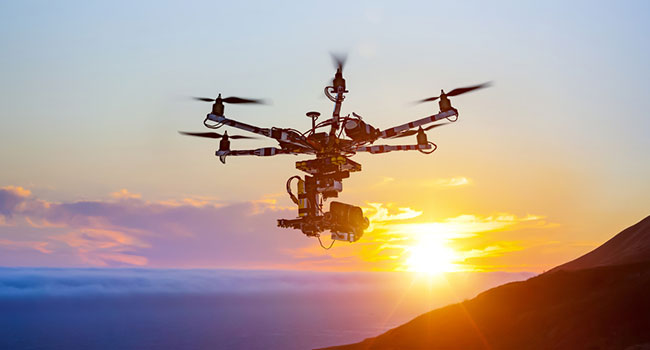
Interior Department Grounds Entire Drone Fleet Due to Chinese Cyberattack Concerns
All of the drones used by the department were either manufactured in China or use parts that were made in the country, sparking concerns about potential hacking threats.
- By Haley Samsel
- Nov 01, 2019
Amid growing concerns of Chinese spying and cyberattacks, Interior Secretary David Bernhardt has decided to ground the Interior Department’s entire aerial drone fleet of more than 800 UAVs, The Wall Street Journal reported Wednesday. The news was later confirmed by the department.
Every drone in use by the agency was either manufactured in China or uses some parts that were made in the country, according to the Journal.
The Interior Department, which manages all U.S. natural resources and federal lands, will not reinstate the drones until a full security review has been completed to assess what risks the devices pose. Officials have previously said they were working with Chinese manufacturer DJI to test software to keep sensitive data secure, according to POLITICO.
“Secretary Bernhardt is reviewing the Department of the Interior’s drone program,” department spokesperson Melissa Brown told The Verge. “Until this review is completed, the Secretary has directed that drones manufactured in China or made from Chinese components be grounded unless they are currently being utilized for emergency purposes, such as fighting wildfires, search and rescue, and dealing with natural disasters that may threaten life or property.”
One complication of the decision is that drones are often used to help emergency response workers combat forest fires, evaluate environmental damage, monitor flooding and more. But the potential risks of keeping the drones in the air include the potential transmission of data, including photos, of U.S. infrastructure to Chinese hackers.
The move comes as a bipartisan group of lawmakers is sponsoring legislation that would ban federal agencies from using Chinese-made drones. The Senate bill, introduced in September, would give agencies 180 days to stop buying drones from countries identified as potential security threats, including Iran.
The Trump administration has already taken several steps to combat what it views as major cybersecurity threats from Chinese-made video surveillance equipment. In recent months, major Chinese tech companies such as Huawei, Hikvision and Dahua Technology have been added to a government blacklist -- called the Entity List -- that prevents American companies from selling their products to the firms without government permission.
While the most recent additions to the Entity List were attributed to China’s abuse of its Uighur Muslim minority, the Huawei decision was attributed to the potential for national security threats posed by Chinese cyberattacks.
About the Author
Haley Samsel is an Associate Content Editor for the Infrastructure Solutions Group at 1105 Media.